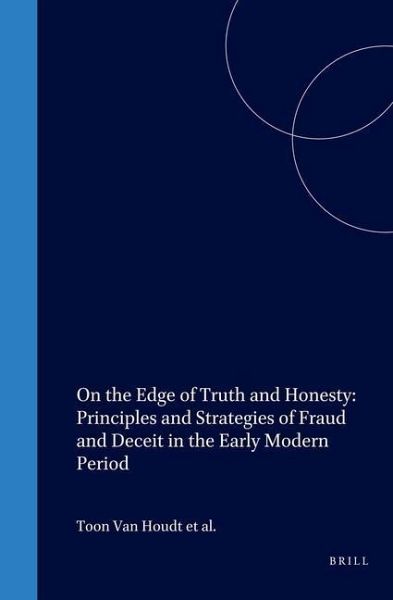Nicht lieferbar

On the Edge of Truth and Honesty: Principles and Strategies of Fraud and Deceit in the Early Modern Period
Versandkostenfrei!
Nicht lieferbar
In the Early Modern Period, deceit and fraud were common issues. Acutely aware of the ubiquity and multiplicity of simulation and dissimulation, people from this period made serious efforts to gain a better understanding of the phenomenon, trying to distinguish between acceptable and unacceptable, pleasant and unpleasant, wicked and virtuous forms of deceit, and seeking to unravel its principles, strategies, and functions. The twelve case-studies of this volume focus on the use of deceit by several groups of people in different spheres of life, as well as on its representation in literary and ...
In the Early Modern Period, deceit and fraud were common issues. Acutely aware of the ubiquity and multiplicity of simulation and dissimulation, people from this period made serious efforts to gain a better understanding of the phenomenon, trying to distinguish between acceptable and unacceptable, pleasant and unpleasant, wicked and virtuous forms of deceit, and seeking to unravel its principles, strategies, and functions. The twelve case-studies of this volume focus on the use of deceit by several groups of people in different spheres of life, as well as on its representation in literary and artistic genres, and its conceptualization in philosophical and rhetorical discourses. The studies testify to the rich variety of deceitful strategies applied by people from the Early Modern Period, as well as to the subtlety and diversity of the conceptual frameworks they construed in order to grasp the many aspects of the elusive yet all-pervasive phenomenon of deceit.



